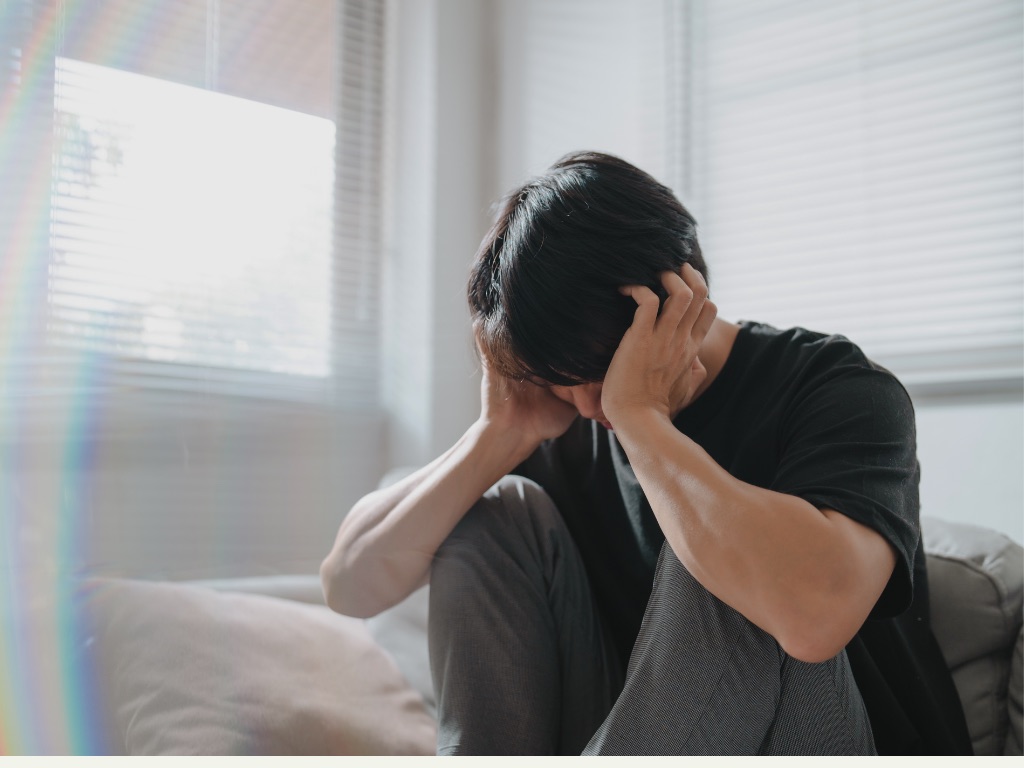Testosterone is a vital hormone that can influence energy, strength, mental clarity, and sexual health. As we age its levels naturally decline this can leave people feeling out of balance, mentally, physically, and emotionally. This guide offers clarity for those beginning their research into low testosterone and helps provide guidance on why it happens, and how its symptoms can be addressed and treated safely.
According to the American Urological Association1, low testosterone affects nearly 40 percent of men over the age of 45 in the United States. Women may also experience testosterone imbalances, though the condition is most studied in men.
Understanding symptoms, causes, testing, and solutions provides a foundation for informed choices. Professional support ensures not only accurate diagnosis but also safe, effective treatment plans.
Recognizing the Common Symptoms of Low Testosterone
Early identification of symptoms associated with low testosterone signs early can make a meaningful difference in how treatment outcomes unfold. Many individuals notice a variety of physical, mental, and emotional changes before seeking help.
Fatigue and Decreased Energy
Persistent tiredness that does not improve with rest is a frequent signal of low testosterone. Energy levels often dip, making daily activities or workouts feel more draining than before. This symptom may appear gradually, leading many people to overlook it at first.
Medical evaluation is indicated to help confirm whether low testosterone is truly the cause of these symptoms. Because fatigue can stem from sleep issues, thyroid dysfunction, or lifestyle habits, expert evaluation ensures that the proper treatment path is followed and no other condition is missed.
Unexplained Weight Gain
Metabolism slows when testosterone levels decline, often resulting in stubborn weight gain, especially around the abdomen. Muscle mass may decrease at the same time, further tipping the scale toward fat storage. This physical change can negatively affect confidence and overall health.
A medical team can identify whether the weight shift is linked to hormones or other metabolic concerns. Addressing low testosterone under professional supervision often supports improved body composition while reducing risks associated with obesity.
Reduced Libido and Sexual Performance
A hallmark symptom of low testosterone is reduced sexual desire and difficulty with performance. Many individuals notice a drop in frequency of interest or challenges in maintaining intimacy. This can impact not only personal satisfaction but also relationships.
With proper hormone testing and clinical treatment, sexual health can often be restored. Professional therapy provides tailored dosing and monitoring, allowing people to regain confidence and reconnect with partners more fully.
Mood Changes and Cognitive Shifts
Hormonal balance influences brain chemistry. Low testosterone may present as irritability, sadness, or difficulty concentrating. Some individuals describe feeling mentally foggy or detached, which can lower productivity and overall quality of life.
Through guided hormone therapy, mood and cognitive clarity often improve. Clinical oversight ensures that treatment is measured and safe, bringing relief without unnecessary risks.
Understanding the Causes of Testosterone Decline
Multiple factors contribute to hormonal decline. Some are unavoidable, while others can be managed through lifestyle adjustments and medical care.
The Impact of Aging
Testosterone levels naturally decline with age, often beginning as early as the mid-30s. Research published by the National Institutes of Health2 shows that levels decrease at a rate of about one percent per year. Over time, this gradual decline can create noticeable effects.
Professional care can help determine if symptoms align with normal aging or more significant hormonal imbalances. This distinction guides whether therapy is recommended or lifestyle adjustments may suffice.
Lifestyle and Environmental Factors
Poor sleep, lack of exercise, excessive alcohol use, and exposure to endocrine disruptors can all suppress testosterone production. Chronic stress also contributes by increasing cortisol levels, which counteract testosterone. These factors are common but reversible with proper support.
A medical consultation provides the tools needed to pinpoint which lifestyle factors are influencing hormone levels. Adjustments in daily routines often enhance therapy outcomes significantly.
Medical Conditions and Medications
Certain illnesses, including diabetes, obesity, and thyroid disorders, can lower testosterone. Medications such as opioids or corticosteroids may have a similar effect. Understanding these links is vital when planning treatment.
Providers at Vita Bella conduct thorough evaluations before suggesting therapy. This ensures any underlying conditions are addressed alongside testosterone optimization, creating a safer and more effective path forward.
How Low Testosterone is Diagnosed
Proper diagnosis relies on a combination of testing and professional assessment. Skipping this process can lead to misdiagnosis or ineffective treatment.
Blood Testing for Hormone Levels
A blood test measures total and free testosterone levels, ideally collected in the morning when hormone levels are highest. Testing also screens for other hormone markers, ensuring a complete picture of health.
Experienced providers must interpret these tests, as results vary based on age, health status, and lab standards. Professional guidance ensures results are understood in context rather than in isolation.
Comprehensive Medical Consultation
A consultation goes beyond test results. Providers evaluate medical history, lifestyle, and symptoms to determine if therapy is appropriate. This discussion also allows clients to voice concerns and set goals.
At Vita Bella, this process creates a personalized plan. Rather than relying solely on lab numbers, treatment recommendations combine science, experience, and individual needs.
Exploring Solutions for Low Testosterone
Solutions range from lifestyle adjustments to advanced medical treatments. Each option works best under proper supervision to avoid risks.
Lifestyle Adjustments
Exercise, balanced nutrition, stress management, and quality sleep naturally support testosterone production. While these changes may not fully restore hormone levels, they create a stronger foundation for therapy.
Professional programs help individuals maintain consistency. Providers guide patients through realistic goals, ensuring that lifestyle improvements support hormonal balance long-term.
Testosterone Replacement Therapy (TRT)
TRT restores testosterone directly through methods such as injections, gels, or patches. Clinical supervision is vital to ensure safe dosing, as improper use can cause side effects.
According to the U.S. Food and Drug Administration, TRT has been shown to improve energy, libido, and bone density when prescribed appropriately. Ongoing monitoring is required to ensure safety.
Ongoing Monitoring and Professional Support
Treatment does not end once therapy begins. Regular follow-ups, lab work, and adjustments keep progress on track while preventing complications. This ongoing care distinguishes professional programs from unsupervised approaches.
Vita Bella specializes in providing this continuous support. With expert guidance, individuals are empowered to achieve balanced results and lasting improvements.
Conclusion
Low testosterone is a common condition that develops as we age, it affects both physical and emotional health. Understanding symptoms, causes, diagnosis, and treatment options empowers people to take action with confidence. With professional oversight, recovery is not only possible but sustainable.
Vita Bella offers expert services tailored to individual needs, combining advanced testing, professional consultations, and treatment options designed to restore balance. Ready to take the first step toward better health and vitality? Contact us today to begin your personalized wellness journey with Vita Bella!
Frequently Asked Questions
Can Women Experience Low Testosterone as Well?
Yes, women can have low testosterone. Symptoms may include low energy, reduced muscle tone, and decreased sexual satisfaction. Diagnosis and treatment require careful evaluation by a qualified medical provider.
Does Low Testosterone Affect Cardiovascular Health?
Research suggests that untreated low testosterone may contribute to higher risks of heart issues. Proper medical supervision helps balance hormone therapy while monitoring cardiovascular markers to ensure overall safety and wellness.
How Long Does It Take to Notice Improvements After Treatment?
Some individuals feel increased energy and mood improvements within weeks, while muscle and body composition changes may take several months. Regular monitoring ensures adjustments optimize both short-term and long-term benefits.
References
3. Curr Opin Urol. 2017 Nov;27(6):511–515. doi: 10.1097/MOU.0000000000000442





















